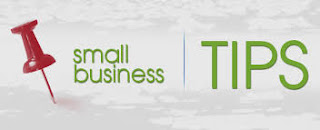
Mistake #1: Getting A Late Start On Saving.
More than any other single error, I'd say this is the one that prevents people from attaining at least a measure of financial security. For example, in a recent survey of retirees by Pentegra Retirement Services 39% of those polled said they regretted not having started saving sooner, and 63% said the most important advice they could offer to people starting out would be to get an early start on saving.
The oldsters know what they're talking about. A 25-year-old earning $30,000 who saves 10% of salary a year would have a nest egg of just over $620,000 at 65, assuming 2% annual raises and a 6% annual return on investments. If that person holds off just five years, the size of the nest egg falls by almost $140,000. Waiting 10 years shrinks it by more than $250,000.
Mistake #2: Taking on unnecessary debt.
Sometimes it makes sense to borrow -- say, to buy a house, purchase a car or finance an education that can increase your earning power. But it's the debt we take on to maintain a lifestyle that exceeds our earning power that gets us in trouble.
And make no mistake, paying down debt can strain your budget. According to NerdWallet's latest annual survey on consumer debt, the average household is shelling out more than $6,650 in interest payments alone per year.
Mistake #3: Buying into Wall Street's 'investing is complicated' mantra.
The message investors get from many Wall Street firms boils down to this: You need to watch the financial markets constantly, spread your money among all sorts of arcane and complex investments and be ready at a moment's notice to dump what you own for new investments. And, of course, to pull off all this successfully, you need their help, for which you must pay a handsome price.
Nonsense. No one, not even market pros, can consistently outguess the financial markets. And research by University of California at Berkeley finance professor Terrance Odean shows that trying to do so by frequent trading is more likely to hurt than enhance your returns.
Mistake #4: Overpaying for financial help.
Whether it's the annual expenses you pay to a mutual fund manager or the fees you shell out to an adviser to help you choose the right funds and provide other financial advice, the fact is that paying more than you have to drags down the returns you earn and makes it harder for your savings to grow. Which is why it makes sense to hold the line on such costs as much as possible.
When it comes to investments, the easiest way to rein in expenses is to stick as much as possible to low-cost index funds and ETFs. Doing so can easily save you upwards of 1% a year compared with the typical stock mutual fund.
Mistake #5: Failing to monitor your progress.
You don't have to (and shouldn't) constantly obsess about money matters. But neither can you just set a course and then assume all will be fine going forward. You need to periodically review your finances -- say, once a year or so -- to ensure you're making headway.
The most comprehensive gauge of whether you're making progress is to track your net worth -- that is, the difference between the value of your assets and liabilities, or what you own vs. what you owe.























